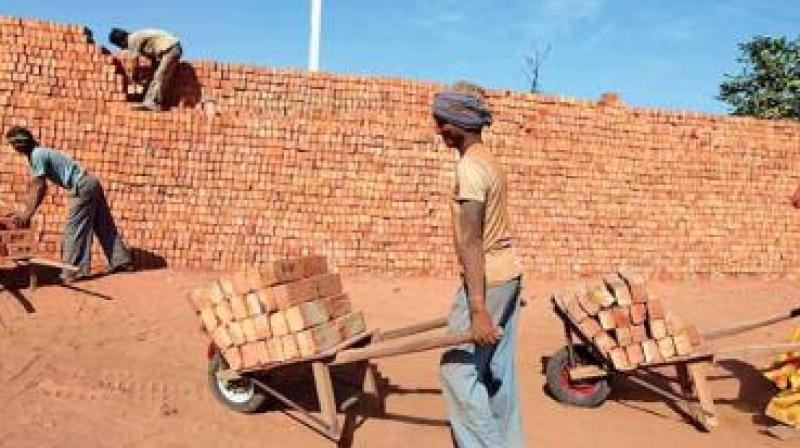New order makes all brick kilns illegal

Hyderabad: A week after the Central Pollution Control Board (CPCB) ordered the closure of brick kilns across the country that operate without valid permission from State Pollution Control Boards, it turns out that the Telangana PCB has never kept a watch on these highly polluting small scale industrial units, and doesn’t even know how many of them exist.
Brick kilns are operated using coal and make up nine per cent of the coal emissions in India, according to a study by the Centre for Science and Environment. They are one of the primary contributors of particulate matter, carbon monoxide and sulphur dioxide, which causes respiratory distress.
Sources in the PCB say that monitoring of brick kilns has not been one of its duties since 2009, when the revenue department under the collector was made responsible for it.
According to Government Order 88, issued in undivided AP in 2010, the PCB only has an advisory role and has drawn up guidelines on environment feasibility. The actual implementing authorities are the district collectors and village tahsildars, who can book offenders under section 133 of the CrPC. But in other states such as Rajasthan, Bihar, UP, and Haryana, the state pollution control boards issue environmental clearance.
Since the monitoring of brick kilns is not under the TSPCB, its officials say they are not aware of how many brick kilns operate in their areas. This makes the new directive from the centre very difficult to implement.
“The brick kilns in the state have open burning system which is highly polluting,” informs TS-PCB environment engineer, Bhadra Girish. The new guidelines by the CPCB require brick kilns to have a zig-zag structure, or induced draft, which makes maximum use of the coal and is less polluting.
The CPCB has already received lists from smaller states on how they are managing the polluting brick kilns.
“States have not been giving a clear idea of the number of brick kilns. With this directive we will get exact data. These industries can cause a lot of damage to the environment however small they are,” said Abhey S Soni, divisional head of Industrial Pollution Control, CPCB.
In January this year, TS police raided brick kilns in Rachakonda to rescue children working there. “The children worked in extremely dangerous conditions and most had poor lung and respiratory hea-lth due to the hazardous conditions,” says officials.
“Brick kilns add to global warming and though this new technology (suggested by the CPCB) may be good, we must move over to eco friendly clay bricks made with ferro cement that involves no kind of burning,” suggests environmentalist Dr K Purushotam Reddy.
Senior officials from TSPCB were unavailable for comment on how they plan to implement the central directive.

